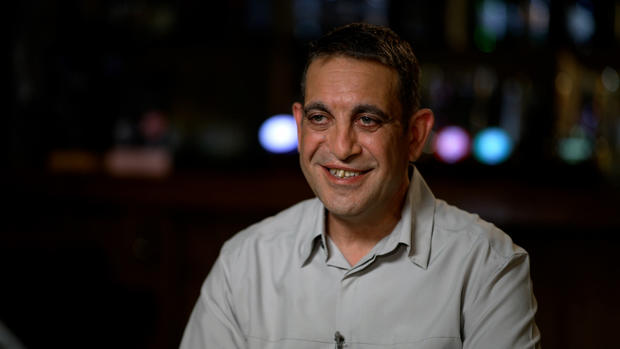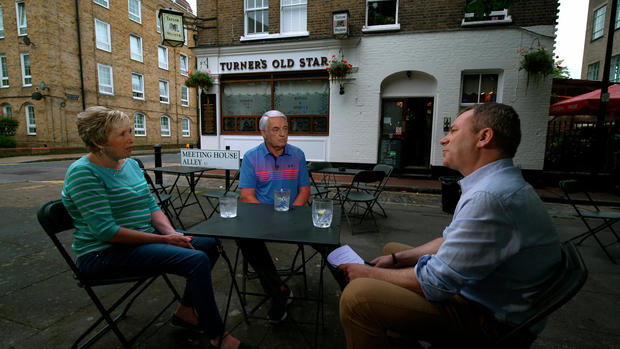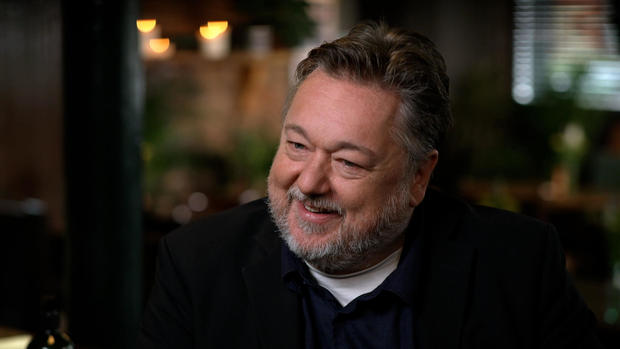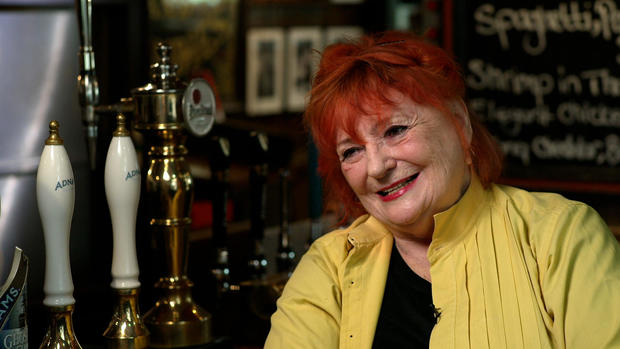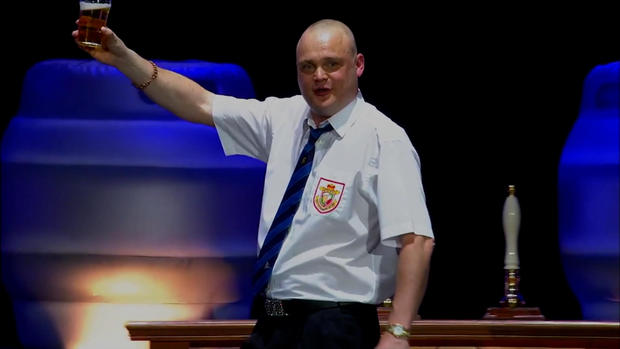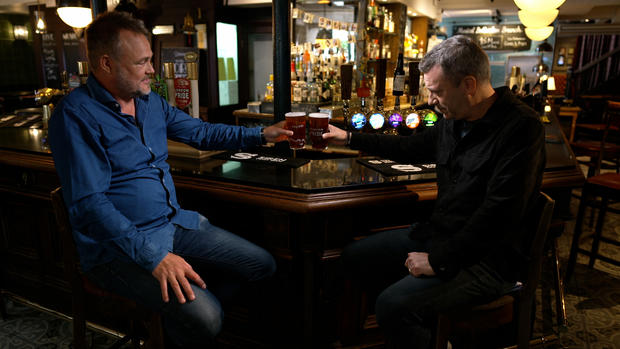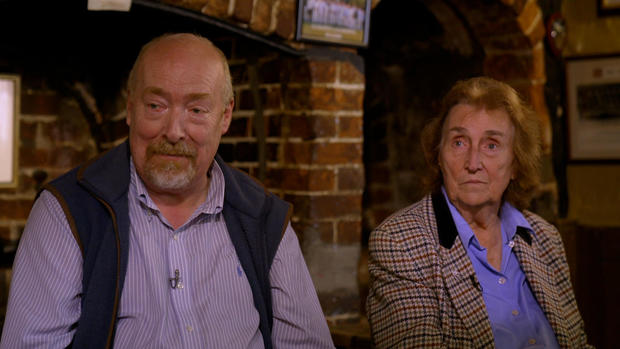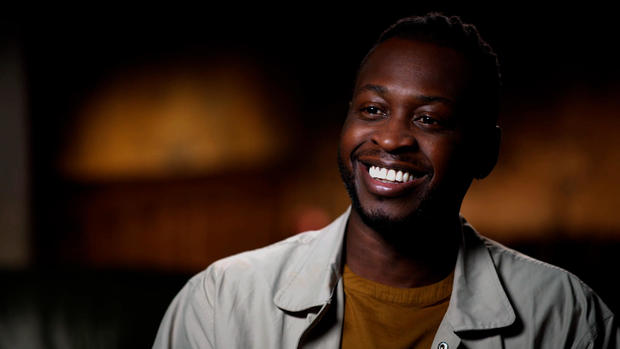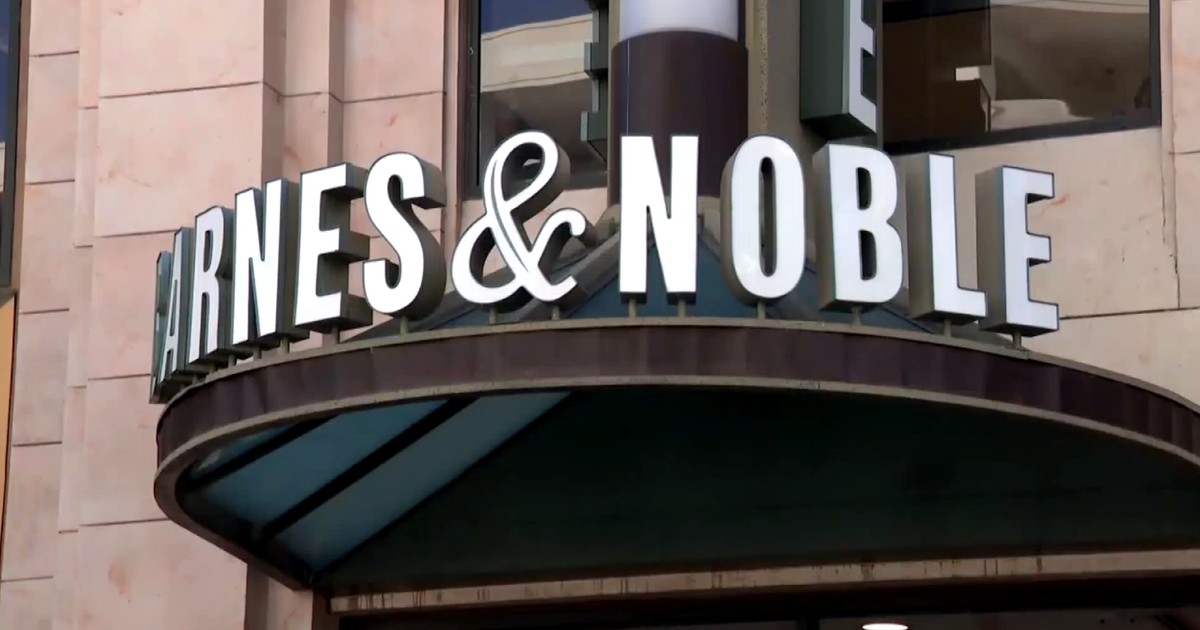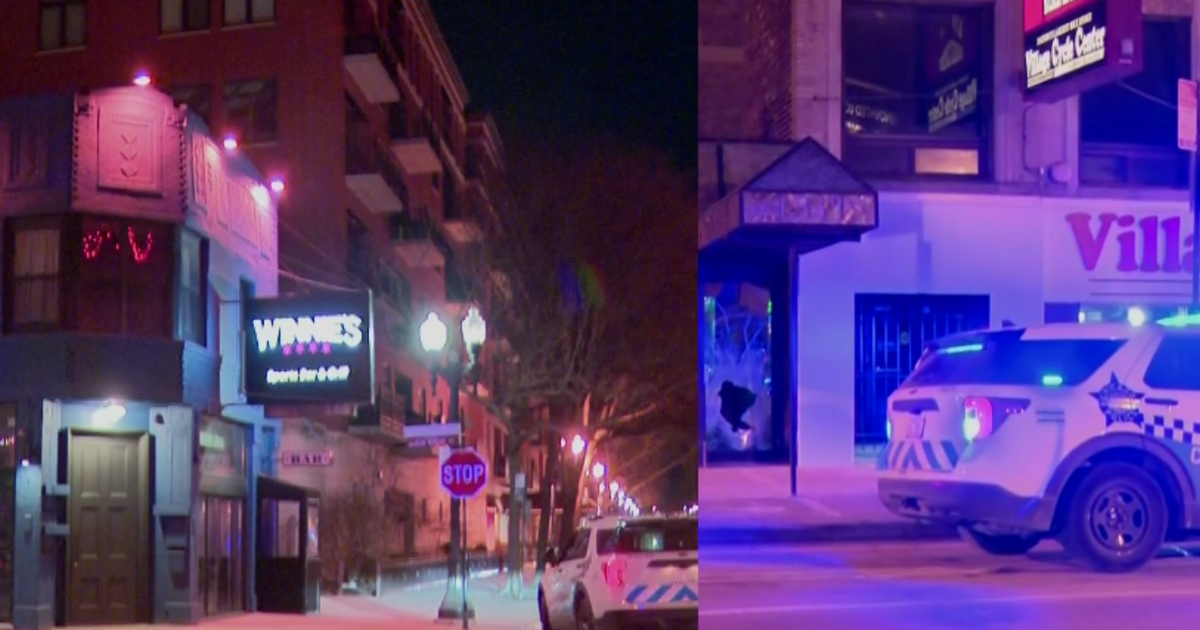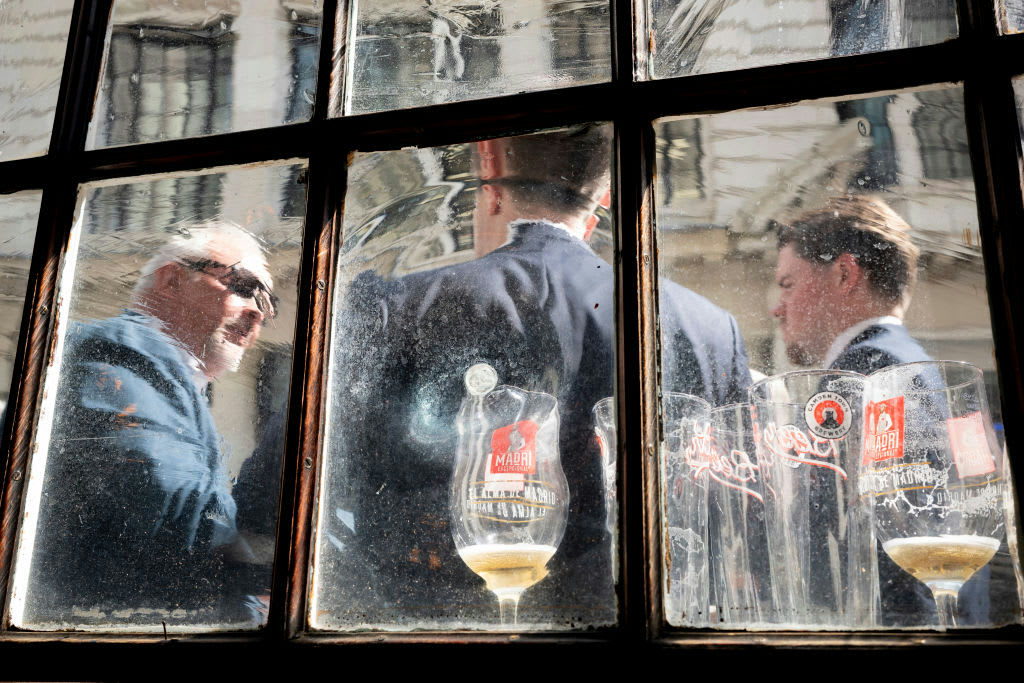England's pubs look for post-pandemic rally
We were nearing last call on the grandest of British institutions: the pub. After enduring for hundreds of years as centers for schmoozing and boozing, pubs were going the way of morning newspapers, afternoon tea, and the whole idea of empire. A range of factors, which we'll get to later, undercut the kind of neighborhood joint where everyone knows your name. Then came COVID, which kept most British pubs closed for more than a year. But this past summer, the U.K. reopened and, not unlike an overserved patron, the pub story started to stagger and lurch in an unexpected direction, and maybe it's not quite closing time after all.
A man walks into a pub. Of course he does. In this case, it's a very old pub, Ye Olde Fighting Cocks in St Albans outside London. Its landlord, or publican, is Christo Tofalli.
Jon Wertheim: So your pub is one of dozens in this country that claims to be the oldest ever--
Christo Tofalli: You're absolutely right--
Jon Wertheim: Make-- make your case. Make your case.
Christo Tofalli: It turns out there's a bit of a misconception, which one's the oldest and what the oldest pub is. So we're the oldest pub. The first brick was laid in 793 and the oldest inhabited building in Europe.
Christo Tofalli: Vikings invaded England in the same year the first brick was laid in 793.
Jon Wertheim: I suspect Vikings would like this place.
Christo Tofalli: They would love this place.
Before we go further, let's define our terms: we're not talking about mere bars, or for the love of god, sports bars. These are pubs, short for public houses. They exist as much for conviviality as for what's on tap: cold lager, and to the shock of first timers, warm ale. They've been cornerstones of the culture here for centuries. The writer/comedian Al Murray believes the value proposition goes well beyond beer.
Al Murray: It's a community place. It's a communitarian place in a way that sitting in your front room watching television just isn't.
Jon Wertheim: What is it about this culture that has such appeal to you?
Al Murray: To sound sort of idealistic about it, princes and paupers are equally welcome in here. And given that Britain is such-- a class-ridden society, there are very few places where, you know, you stand at the bar and your-- your money's as good as anyone else's.
Jon Wertheim: You sound like a pub romantic.
Al Murray: I am completely romantic about the idea of pubs.
Jon Wertheim: Why?
Al Murray: There is something genuinely beautiful about the idea of somewhere where anyone can go at any time and sit in the corner with-- with their own thoughts and a drink and it's a beautiful notion.
You don't go to Turner's Old Star for quiet contemplation. One of the last of the so-called boozers in London's East End, it's the heartbeat of the proudly working-class community here.
Jon Wertheim: Put in a day of work, you work hard, you come in, and then you-
PUB PATRON: Yeah, absolutely. You work hard all day and then you kinda like, it's just like having a mental shower after a hard day's work, kind of wind down. It's like a real-life Cheers, I guess, you know?
PUB PATRON: They make you feel welcome. They make you feel welcome. You're family. You're family.
Paul and Bernice Drew have run the Old Star for 17 years. They met across the street, got engaged here. They live upstairs, the pub is their living room, the regulars their oldest friends.
Jon Wertheim: When you say "regulars," though, these are really regulars.
Paul Drew: Oh yeah everyday.
Bernice Drew: Everybody. Everyone from naught to 90 enjoys themselves.
Bernice Drew: There's a core of people, I suppose ten, 15 people, that come in every day regardless, winter, summer, whenever.
Paul Drew: They all come, have their couple of beers, have a laugh. Chew the wag as they say. And, you know, slag everyone off. (LAUGH) They're always having a go at each other. (LAUGHTER)
Jon Wertheim: I-- I hear you say with a real pride, "This is pr-- proper pub."
Paul Drew: It is. It's my pub pub. It's what we call it, don't we?
Bernice Drew: No, it's a pub pub.
Paul Drew: We call it our pub pub.
For centuries pubs have been as much salon as saloon, as they've taken a stool and watched history and myth unfold. In London's Soho, The French House was where bohemians would rub shoulders with resistance leaders. After Paris fell to the Nazis in 1940, Charles de Gaulle, in exile, is said to have written his famous speech to the French Free forces here. A little further east on the River Thames, legend has it that the 17th century Judge Jeffreys would watch those he sentenced hang as he lunched and sipped ale at The Prospect of Whitby.
And then there's the cholera epidemic that gripped London in 1854 killing 550 people in two weeks. A local doctor John Snow figured out the problem: contaminated water from a well was spreading the disease and simply removing the handle from the pump effectively ended the epidemic. John Snow wasn't knighted but he did receive what might be the next highest British honor.
Christening a pub after someone is an exception. Many pub names read like drunken Mad Libs… random adjective plus random noun, often an animal. The Ape and Apple, the Snooty Fox, The Drunken Duck, The Black Dog.
For Pete Brown, Britain's leading writer on beer and pubs, these names offer a clue to every establishment's story.
Jon Wertheim: What's going on here?
Pete Brown: It's become one of the quirky aspects of the British pub.
Pete Brown: But it-- it starts off in a very practical way, which is that most of the population who went to pubs until recently were illiterate. So you couldn't put a name sign up. You had to have a pictorial sign. So you-- you'd pick a pic-- you'd pick a picture of something that had some resonance with people. But then some of the ones that you just mentioned, I think-- it's kind of the pub self-satirizing itself.
And it's not just pub names that veer toward the colorful and eccentric. Just behind London's Law Courts—and then behind the bar—you'll find the owner, chef, and star performer of the Seven Stars pub, the talented Mrs. Roxy Beaujolais.
Jon Wertheim: Your husband is American.
Roxy Beaujolais: Yes.
Jon Wertheim: How do you explain what you do to-- to his family?
Roxy Beaujolais: Well, when I was first introduced to them about 30 years ago-- his mother asked me what I did. And I said, "I'm a publican." She said, "What?" And my husband dove in and said, "No, no, no, no, no, Mama. N-- not a Republican, (LAUGH) a publican-- a tavern keeper."
Jon Wertheim: So what-- what is it about this job that clearly feeds something in you?
Roxy Beaujolais: I'm good at it, darling. (LAUGHTER) I'm good at it. You know, I cook, I-- you know, I have a passing interest in the product that I sell myself. You know, I love it.
For the last 25 years, comedian Al Murray has loved playing the figure behind the bar. His alter ego on stages: a head-shaved, over-opinionated blowhard, he calls The Pub Landlord.
The Pub Landlord: We're sensible people in this country, aren't we? Down to earth people. We never put a man on the moon. Nah, the moon was never going to be part of the British Empire, was it? Nah. There's no one to give it back to once were done with it was there?
Jon Wertheim: What is it about that archetype?
Al Murray: He's a know-all who knows nothing. It's-- it's a guy who-- has power but no authority. It's a guy who is-- is writing intellectual checks he can't possibly cash.
Jon Wertheim: A mile-- mile wide, inch deep.
Al Murray: It's the whole swirl of what happens in a pub. The publican is the conduit, the confessor, the-- the sort of, you know, high priest in-- in a space like this. So all goes through him.
It's all good fun, but as his character suggests, pub culture is, if not eroding, undergoing considerable change.
For generations the number of British pubs has been declining. From 65,000 to fewer than 50,000 in the last 25 years. The causes of death are many: high beer duty, a smoking ban, cheap supermarket lager, people drinking less. Perhaps the biggest culprits? Venture capitalists and developers more interested in a pub's real estate than what's on tap.
And then in March 2020 came the hammer blow, COVID-19.
Jon Wertheim: What was it like when this closed for the first time?
Christo Tofalli: Soul-destroying. I mean, in business terms-- lethal. I still haven't got any words for it, Jon. It-- it-- it-- we have a passion to open the door every single day.
Jon Wertheim: This-- this wasn't just change the sign on the door? This sounds almost existential?
Christo Tofalli: Oh, its terminal, for a lot of pubs.
Even in the worst of times—the Napoleonic Wars, the Spanish Flu—pubs did not close. Despite the bombings in the Blitz, Churchill insisted that pubs remain open. How bad can things be if we can still pull a pint?
This is just a little story to show that the spirit of the pubs is excellent, their houses bombed, they carry on outside.
The lockdown gave Britain a glimpse of a future without pubs. For months, the cobbled streets where Dickens once walked: silent. The taverns where Chaucer or Shakespeare might have drunk: empty. Millions of barrels of beer literally down the drain.
Jon Wertheim: What does this country stand to lose if pubs diminish?
Pete Brown: Part of its identity. We celebrate our nationality in a very quiet way, in-- in a very modest way. And the pub is the perfect example of that. We're-- we're proud of the pub. And if it was taken away from us, I think we'd lose something of what defines us-- as a nation.
Jon Wertheim: It's not flag-waving jingoism, but-- but coming in here is sort of an-- an-- an--
Pete Brown: Yeah--
Jon Wertheim: Act of patriotism, you're saying--
Pete Brown: It's just coming in and just going, (SIGH) "Yeah, I'll have another pint, thank you."
Coming out of lockdown the pint-wielding patriots believed, more than ever, that the pub is an institution worth saving.
Jon Wertheim: Saving the traditional pub, is that nostalgia for-- a Britain that may no longer exist?
Al Murray: Oh, there are so many Britains that may no longer exist, but the-- the one that's worth saving is the pub, surely.
Al Murray: I mean, you know, we don't need a navy anymore, do we? We need pubs. (LAUGH)
In a changing Britain, nostalgia can reside at the bottom of a glass. In the oh-so-English village of Aldworth in Berkshire you'll find just a cricket green, a church, a few houses, and a pub resistant to time. The Bell Inn has been in the family of Heather Macaulay for 200 years. She was born in the pub and now, at age 85, runs it with her son, Hugh.
Jon Wertheim: How many generations in-- in these 200 years?
Heather Macaulay: We go as-- it was James and Hugh and Thomas and Ronald and then me, five, I suppose.
Jon Wertheim: We've talked to some pub owners who've said they-- they felt this pressure to evolve and they're trying gourmet food and DJs and technology.
Hugh Macaulay: Here, no. We are plain, simple, that's how we survive, that's how we're going to survive.
Hugh Macaulay: I don't think we'll ever be putting TVs in here somehow.
Heather Macaulay: Oh no, no.
Heather Macaulay: Well, I don't even have a mobile phone.
Pubs like the Bell Inns and The Old Stars have done what they've always done, served their communities. But where does the rest of the country fit in? Nigerian-born Clement Ogbonnaya is proud owner of The Prince of Peckham in South London. He has taken the magic of the pub and adapted it to multicultural, 21st Century Britain.
Jon Wertheim: You hear the word "pub" 20 years ago, what are you thinkin'?
Clement Ogbonnaya: I'm thinking I'm not going there. (LAUGH)
Jon Wertheim: So play that out for me. You walk into a conventional pub and what happens?
Clement Ogbonnaya: Think of Clint Eastwood in a Western movie. Like, everyone looks at the door swingin. "Who's that guy?" That's how-- that's how I felt in some pubs I walked in.
Jon Wertheim: Piano stops playin'--
Clement Ogbonnaya: Absolutely. Absolutely.
Four years ago, Clement bought up a neighborhood joint destined to be turned into an apartment block or a minimarket.
Clement Ogbonnaya: Pubs play a massive part in representatin' the communities, representatin' the under-represented, the marginalized, and givin' them a space, givin' them somewhere where they can actually be, they can congregate, they can share ideas.
Jon Wertheim: When kids today hear the word "pub" what-- what do you want them to think?
Clement Ogbonnaya: I want them to think, "That's-- that's a space for me. That's a space where I can be. That's a space where I can celebrate. That's a space where I can hang out, I can laugh, I can mourn."
Jon Wertheim: That's what you're goin' for when you opened this place.
Clement Ogbonnaya: I just-- I j-- I just love seein' the meltin' pot that is London reflected in this pub.
And herein might lie the key to the pub's survival. Cater to an evolving and ever-changing Britain, and beer and good cheer might well flow in equal measure. Those pints, after all, aren't going to drink themselves.
Produced by Michael H. Gavshon. Associate producer, Nadim Roberts. Broadcast associate, Elizabeth Germino. Edited by Matthew Lev.

